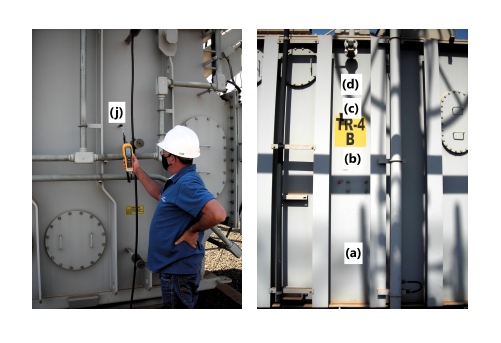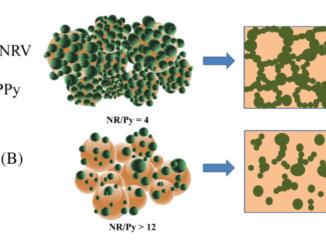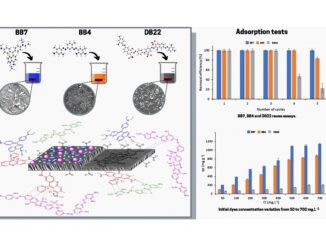
A Triboelectric Nanogenerator for Energy Harvesting from Transformers’ Vibrations
Abstract: Transformers can produce gases dissolved in oil that can cause damage to their structures, and preventing failures caused by these gases is a goal to be reached. There is a demand for wireless sensors to monitor those gases. Alongside its development, there is a growing interest in new energy sources enabling these technologies. Triboelectric nanogenerators can gather energy from the environment, such as mechanical energy from vibrations, and convert it into electricity from the contact of two dielectric materials. In this work, the authors propose the study of a low-cost and straightforward triboelectric nanogenerator (TENG) based on ZnO nanorods as a positive dielectric material, with PDMS:GO composites at different concentrations as the negative dielectric material. All the studies were carried out in a wide frequency range varying from 45 to 250 Hz. Additionally, an analysis of the addition of a steel spring into the TENG to improve the device’s generating output is shown. A power density of 246 mV m−2 and 4 V of the output voltage was obtained using a PDMS:GO 4% (w/w) composite and a steel spring. A correlation between the “mass-spring” system and the better performance of the triboelectric device is presented. Further, vibration frequencies in several external points of the transformer walls and the device’s performance in these frequencies are shown, and the results gathered from this data are discussed.
Author(s): Simoes, A. N.; Carvalho, D. J.; Morita, E. D.; Moretti, H. L.; Vendrameto, H. V.; Fu, L.; Torres, F.; de Souza, A. N.; Bizzo, W. A.; Mazon, T
Machines
Published: 18 March 2022
DOI: https://doi.org/10.3390/machines10030215
CDMF
The CDMF, hosted at the Federal University of São Carlos (UFSCar), is one of the Research, Innovation and Dissemination Centers (RIDC) supported by the São Paulo State Research Support Foundation (Fapesp), and also receives investment from the National Council Scientific and Technological Development (CNPq), from the National Institute of Science and Technology of Materials in Nanotechnology (INCTMN).




